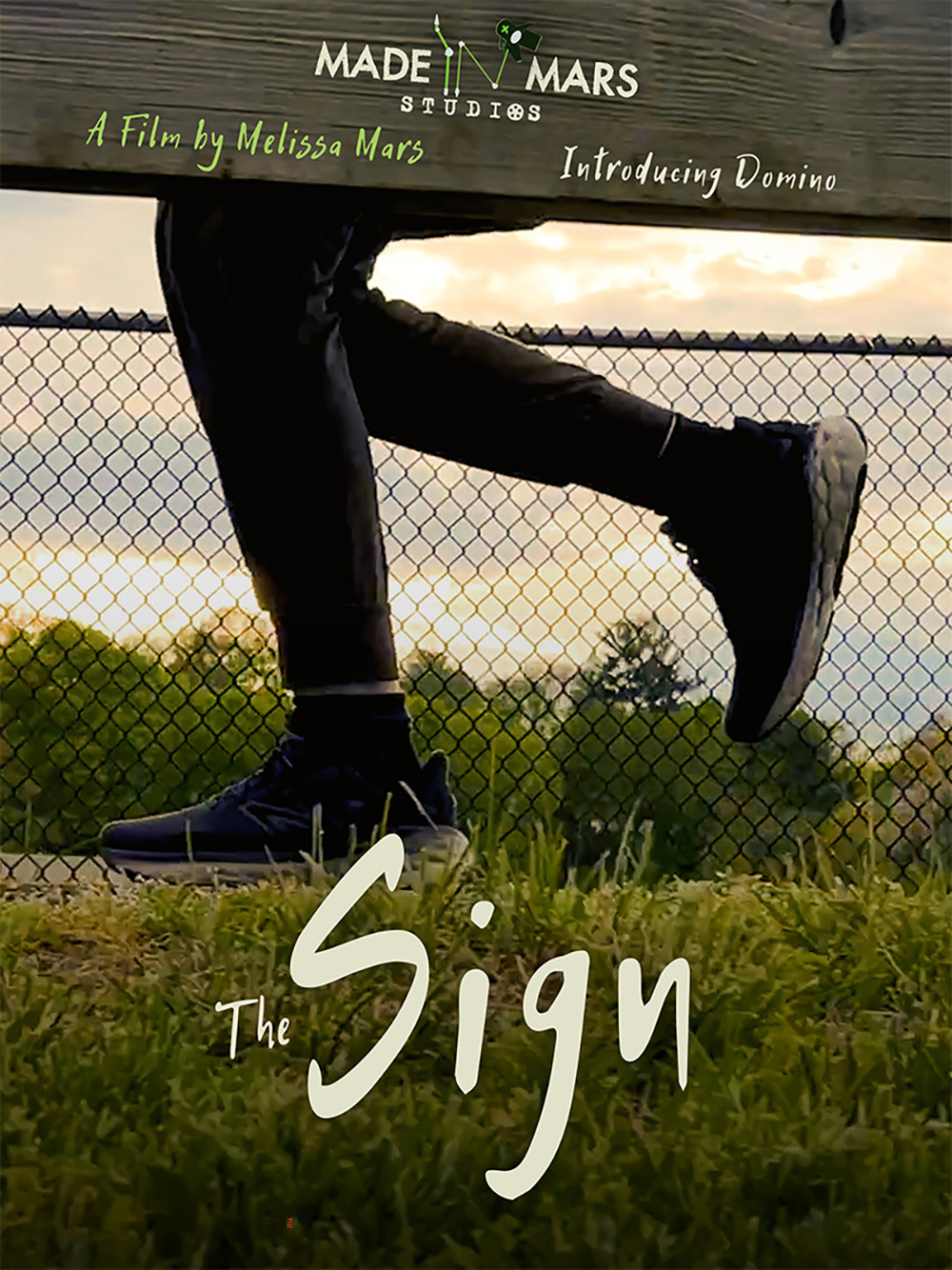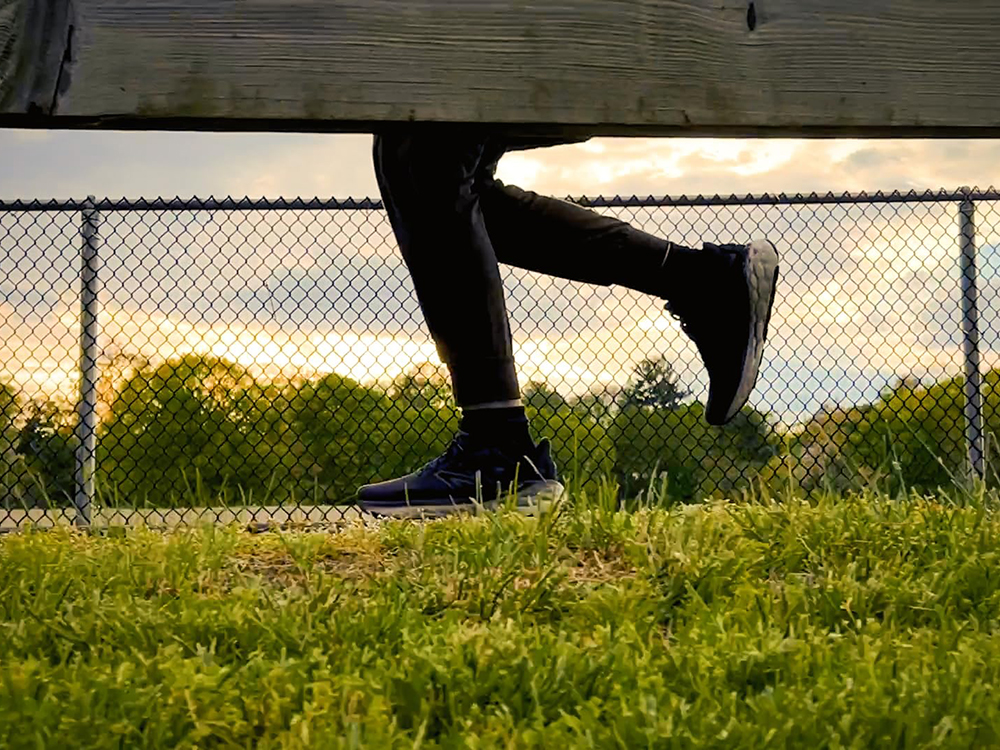Short - The Sign: Melissa Mars reinvents visual storytelling to highlight invisible disabilities
By Mulder, 05 april 2025

There are short films that entertain, and then there are those that stay with you, haunting you long after the credits roll. The Sign, the latest project written and directed by multi-talented artist Melissa Mars, clearly falls into the latter category. The Sign offers an original and moving take on the experience of invisible disabilities, conditions that aren't immediately apparent but nonetheless have a profound impact on everyday life. This four-minute short film is a masterclass in how innovative visual storytelling and a focused theme can have an impact far beyond the constraints of time. Melissa Mars, who also produced the film and stars, Monica Blaze Leavitt, and the charming dog Domino, has crafted a bold narrative that limits the viewer's perspective to a single point of view: that of the legs. This deliberate stylistic choice, reminiscent of certain animation techniques that keep the viewer's gaze at a child's eye level, forces viewers to pay closer attention to body language, sounds, and their own assumptions, rather than relying on facial expressions and dialogue to follow the story.
Behind this decision to limit the frame lies a deeply personal motivation for Mélissa Mars, who has long been an advocate for disability awareness, particularly the often misunderstood and overlooked world of invisible disabilities. In interviews leading up to the premiere, Mars explained how a series of personal experiences, both her own and those of her loved ones, shaped the emotional core of The Sign. These experiences highlighted how people with invisible disabilities are often misjudged, overlooked, or even blamed for circumstances beyond their control. In a touching anecdote, Melissa Mars recounted witnessing someone close to her with an invisible disability being verbally assaulted while accompanied by his service dog at a park’s beach where “pets” were prohibited — a moment that crystallized the ignorance and prejudice that many face on a daily basis.. This sense of immediate and visceral misunderstanding is precisely what The Sign captures with its mounting tension: a woman jogging in a seemingly ordinary park finds herself calling 911, setting off a spiral of panic and confusion. Yet, true to the film's underlying philosophy, what initially appears to be an emergency turns into something much more nuanced, inviting viewers to question their snap judgments and confront their own biases.

The production itself was a fascinating exercise in minimalist but expressive filmmaking. Working within such a strict visual framework meant that every detail mattered: the sound of sneakers on gravel, the movement of a dog's leash, the frantic gesture of a wrist dialing a phone number. Melissa Mars collaborated closely with her team to create an environment where the sound design, musical cues provided by Filmstro, and physical movements conveyed the full emotional weight of the story. The dog, Domino, was not just an adorable addition to the cast, but an essential emotional anchor to the story, a living, breathing symbol of loyalty and trust in a moment of profound vulnerability. Shooting a film that avoids showing faces also presented unique challenges on set; actors had to convey complex emotions solely through their physicality, a task that required heightened body awareness and a deep understanding of the underlying emotional currents of the story.
What is particularly remarkable about The Sign is the way it invites viewers to participate in the construction of meaning. By hiding faces, traditionally the seat of emotions, the film offers the audience a blank canvas onto which they must project their own feelings, assumptions, and imagination. In doing so, Mars harnesses the power of absence, transforming the invisible into a powerful narrative tool. It's a choice that speaks volumes about how society often ignores or misunderstands the invisible struggles of people with invisible disabilities. The subtle but devastating plot twist ultimately reveals how easily fear and misunderstanding can escalate in a world that is too quick to judge based on appearances. And in a culture saturated with visual stimuli and snap judgments, Mars' insistence on limiting the viewer's field of vision feels both radical and necessary.

The film's world premiere at the Garden State Film Festival, a flagship event on the independent film circuit known for championing bold and original voices, marks an important moment for The Sign and for Melissa Mars herself. The 2025 edition of the festival places a particular emphasis on socially conscious storytelling, making it the ideal launchpad for a film that invites viewers to reconsider their perceptions of the world around them. Early audience reactions have been positive, praising the film's emotional resonance, inventive style, and ability to tell a rich and complex story with minimal dialogue and maximum emotion. In a sea of short films that often rely on clever twists or flashy visual effects to make an impression, The Sign stands out by doing something much rarer: creating a deeply moving experience that stays with you precisely because of its restraint, tenderness, and courage to ask difficult questions without providing easy answers.
With The Sign, Melissa Mars has not only made a technically accomplished short film, but she has also made a significant contribution to the current debate on the representation of disability in the media. Her creative gamble—limiting the visual scope, relying on the senses, and trusting the audience to fill in the blanks—has paid off, resulting in a film that is as vital as it is heartbreaking. As it begins its festival run, The Sign looks set to leave a lasting impression, reminding us all that sometimes what we don't see is what matters most.
The Sign
Written and directed by Melissa Mars
Produced by Melissa Mars
Starring Monica Blaze Leavitt, Melissa Mars, and Domino (the dog)
Music by Filmstro
Running time: 4 minutes
Website: www.madeinmarsstudios.com

